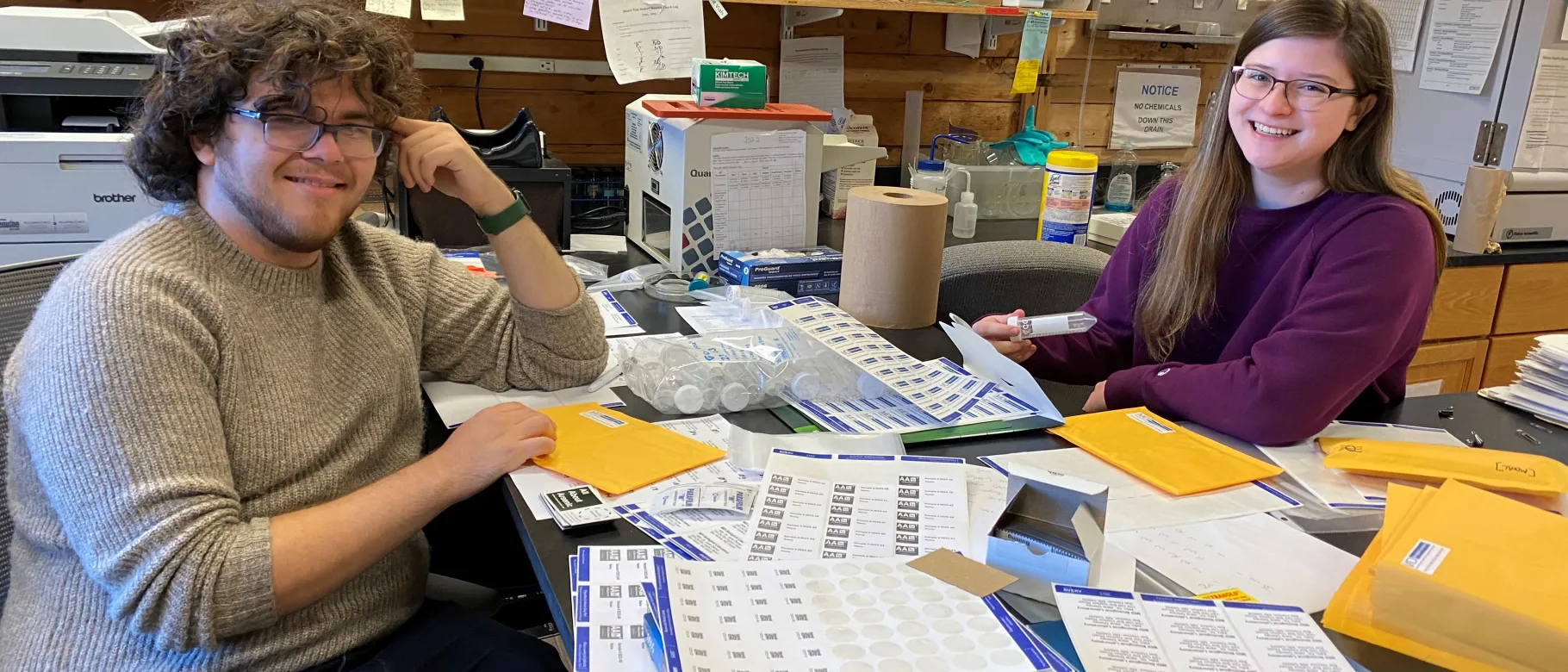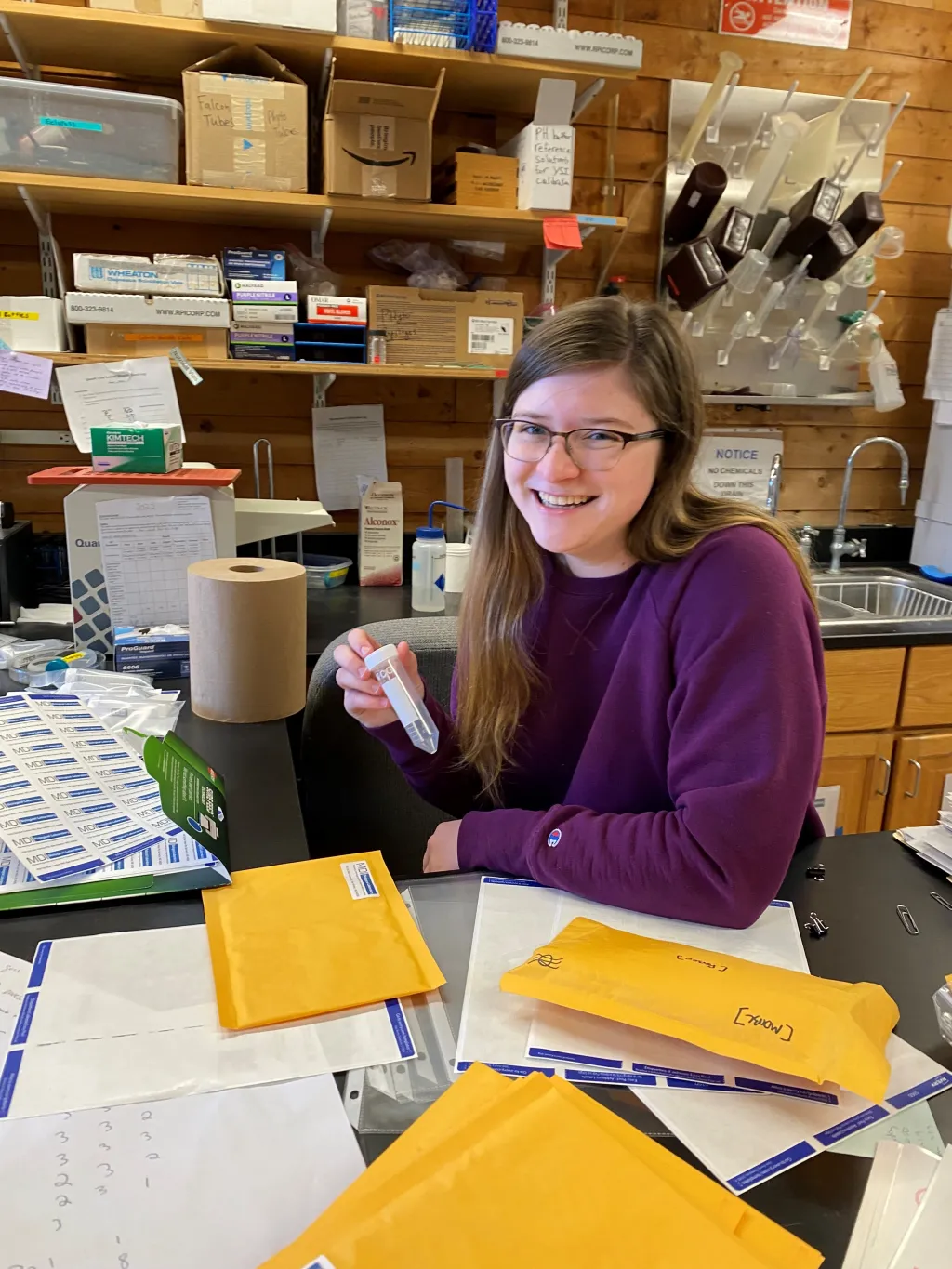UNE collaborates with MDI Biological Laboratory on water quality survey for seniors

Water is essential for life, but within the life-sustaining substance may lie hidden hazards to health. Contaminants like arsenic and forever chemicals are invisible, and we may be oblivious to the dangers they present every time we boil a pot of water or take a sip.
A collaborative survey being conducted by the University of New England and the Mount Desert Island Biological Laboratory (MDIBL) aims to identify older adults’ opinions and assumptions about the quality of their drinking water in Maine and elsewhere.
The survey — spearheaded by Tom Meuser, Ph.D., director of UNE’s Center for Excellence in Aging and Health, and Jane Disney, Ph.D., associate professor of environmental health at MDIBL — is currently being circulated amongst UNE’s Legacy Scholars and other groups.
The Legacy Scholars are a group of adults 55 and older who join UNE’s students, faculty, and professional staff in shared scholarship and service in support of healthful aging.
So far, Meuser said, the survey has collected over 140 responses.
“When I learned of Jane’s work on home water quality, I just had to get involved,” Meuser remarked. “Her lab works through school districts and educates children and their parents about well water safety. I asked, ‘What about older adults?’ and we soon began planning for this survey and recruiting UNE students to help.”
A common contaminant in well water is arsenic. While it is a natural component of the earth’s crust, arsenic is linked to bladder and other cancers, increased blood pressure, harmful hormonal changes, and altered immune responses.
UNE student Brooke Parks (Environmental Science, ’23), who assisted in developing the survey, said it is important to inform people of the hazards their water may pose to their long-term health — especially if they have private wells, which she said are not government regulated.
“It’s critical that people know they are drinking safe water, especially older adults who realize their health is very important and want to take good care of themselves,” said Parks, who said the experience has guided her future career interests in water quality management. “Getting people this information is really important.”
Education is also part of the effort, as is an invitation for home water testing. The current priority of Disney’s Arsenic & Aging Project, she said, is “to reach older adults from across Maine, test their water for arsenic and similar contaminants, and explore potential impacts on health.”
Cue the Legacy Scholars.
According to Meuser, the Legacy Scholars complete an annual survey on personal health and wellness. Their responses to the water quality survey will allow the team to correlate any contaminants found in home tap water with self-reported health over time.
“My laboratory’s ‘All About Arsenic Program’ is proving the benefits of participatory citizen science,” Disney stated. “Our current well testing efforts, which include working with schools in Maine and New Hampshire, are raising awareness about household water quality issues and, in some cases, revealing significantly elevated levels of arsenic in residential wells. This collaboration with UNE is a terrific opportunity to address the health concerns of another vulnerable population. The Legacy Scholars make this exciting work possible.”
Results of the survey will be processed early in the coming year, and Meuser said he hopes to capture about 1,000 responses before closing the survey. So far, about 80% of participants have requested to have their water tested.
